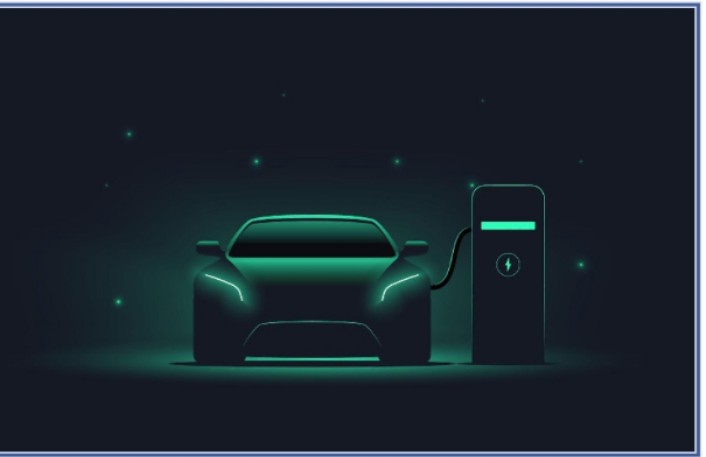One of the current trends in the automotive industry today is the development of electric vehicles. Manufacturers across the world are now investing resources to ensure that EVs are promoted, and this is in response to the growing need for environmentally friendly solutions. Today, electric vehicles are made of different components, one of them being the electric motor control unit, which is vital for reliability, efficiency, and vehicle performance.
Microcontrollers for electric vehicles and hybrid electric vehicles are integrated circuit systems that are designed to control different electronic components within the vehicles. Think of it like the brain of the vehicle that can control functions like battery management, engine management, and regenerative braking. It also facilitates the control of other components within the vehicle, including power distributions.
In this article, we’ll take you through everything you should know about microcontrollers in electric vehicles, so continue reading for more.
The Role of Microcontrollers in Electric Vehicles
Microcontrollers are critical, especially for electric vehicle control units. As the core component of these vehicles, they help to monitor sensor data, communicate with other vehicle systems, adjust motor parameters, and execute complex algorithms. Here’s an overview of the roles of microcontrollers in the motor control systems of electric vehicles:
- Power Management: Power management is one of the main functions of microcontrollers in electric vehicles. It helps in managing the supply of power to the motor control unit thereby ensuring stable vehicle operation. In addition microcontrollers also monitor battery voltage to prevent over discharging and overcharging. Basically the microcontroller is vital for executing energy management with focus on improving energy efficiency.
- Functional Safety: Microcontrollers are usually integrated with functional safety features to further guarantee the safety of electric vehicles. The safety features help to prevent dangerous situations and potential malfunctions in the vehicles.
- Communication Interfaces: Electric vehicles have different subsystems that are in active communication with each other for effective functioning. Microcontrollers offer an interface for effective communication and this includes UART, Ethernet and CAN bus all of which are aimed at delivering effective data exchange within the electronic components of the vehicle.
- Sensor Interfaces: There are many interfaces within microcontrollers, all aimed at connecting different sensors. Examples of these sensors include voltage sensors, temperature sensors and motor position sensors. These sensors are designed to provide vital data for environmental conditions and monitoring motor status.
- High-performance Computing: There’s a need for real-time control and computing within electric vehicle motor control systems. Microcontrollers are designed to offer the power needed for this type of computing, thereby allowing for the execution of complex control algorithms to guarantee motor operational efficiency.
Challenges of Electric Vehicle Motor Control
Designed the importance and role of microcontrollers in EVs, it’s important to note that there are a few challenges motor control faces. Here are some of the challenges to note:
- Cost Pressure: The market for electric vehicles is highly competitive and influenced by many factors with cost being a major factor. There’s need for designs that help to reduce the high cost of motor control units without altering their performance and this is currently not available.
- Functional Safety: There’s need for strict adherence to safety standards especially with respect to driving safety. It’s important to ensure that motor control units are safe enough to help in preventing potential dangers.
- High Efficiency Requirements: Energy utilization is the main factor that determines the success of an electric vehicle. It’s important for the moto control unit to be able to minimize energy waste and this is only possible if it can function within high efficiency range.
- Energy Management: The main source of energy in electric vehicles is batteries. Therefore, it’s important for the control unit to be able to check the battery status, voltage and temperature regularly. This is to allow it to improve range and extend the life of the battery.
- Dynamic Drive Requirements: There’s need for electric vehicles to be able to adapt to different driving conditions. This includes off-road driving, highway driving and city traffic driving. For this to be possible the motor control unit must be highly tunable so that it can adapt to different driving conditions effectively.
Latest Trends and Developments of Microcontrollers
With the continuous increase in the popularity of electric vehicles, new trends in the industry continue to emerge. Today, manufacturers of microcontrollers strive to offer more advanced solutions to cater to the challenges above and meet the demands of many. Some of the current trends in the industry include the following:
- Integration and Versatility: Manufacturers are now introducing multiple solutions with different functions. This includes X-in-1 and e-axle, all of which are designed to simplify the electrical architecture of EVs.
- Scalability: Vehicle manufacturers now offer solutions that target costs and improve performance. Microcontrollers are now designed to meet different needs and are suitable for different types of electric vehicles.
- Inductive Position Sensing: Another trend is in the sensing technology. Inductive position sensing is now an efficient and cost-effective solution that comes in handy for the detection of angular positions. This further minimizes the costs and complexity of the system.
- High Efficiency and Performance: Electric vehicle design is constantly evolving, and this extends to microcontrollers. Microcontrollers are now designed to support different algorithms which further improves their power performance and range.
- Functional Safety and OTA Updates: This is now very important for electric vehicles, and microcontroller manufacturers are now providing solutions that can support these advanced features. The aim of this is to further ensure safety and improve performance.
Microcontrollers are a key component of the motor control units of electric vehicles. They provide support for different operations and offer functions like communication interfaces, power management, functional safety, sensor interfaces and high-performance computing.
As the market for electric vehicles continues to evolve, manufacturers of microcontrollers are putting in efforts to ensure that they deliver advanced and effective solutions to cater to the dynamic nature of the industry and solve different challenges. Some of the trends today include inductive position sensing, scalability, integration and versatility and high efficiency and performance.








